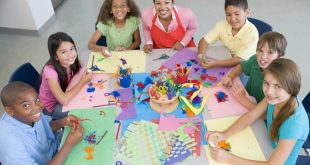The involvement of parents in their child’s education is a critical factor that can significantly influence academic success and personal development. From the early years of schooling through adolescence, parents play a vital role in shaping their children’s attitudes towards learning, fostering essential skills, and providing emotional support. This article explores the multifaceted role of parents in their child’s education and outlines effective strategies for engagement.
 1. Establishing a Strong Foundation for Learning
1. Establishing a Strong Foundation for Learning
a. Early Education at Home
Parents are a child’s first teachers. From infancy, they can foster an environment conducive to learning by engaging in activities that promote cognitive and emotional development. Reading to children, encouraging curiosity, and providing educational resources can lay the groundwork for a successful academic journey. Research has shown that children who are read to regularly develop stronger language skills, better comprehension, and a greater love for books.
b. Creating a Positive Learning Environment
A supportive home environment is crucial for academic success. Parents can create a dedicated study space that is free from distractions, where children can focus on their homework and projects. Establishing routines, such as designated study times, helps children understand the importance of education and cultivates discipline.
2. Encouraging Academic Achievement
a. Setting High Expectations
Parents who set high but realistic expectations for their children can motivate them to strive for excellence. Communicating the importance of education and encouraging a growth mindset can instill a sense of ambition in children. When parents express confidence in their children’s abilities, it fosters resilience and determination.
b. Monitoring Academic Progress
Active involvement in a child’s academic life includes monitoring their progress and staying informed about their performance in school. This can be achieved by regularly checking homework, attending parent-teacher conferences, and maintaining open communication with educators. When parents are engaged, they can identify challenges early and provide the necessary support to help their children overcome obstacles.
3. Supporting Emotional and Social Development
a. Providing Emotional Support
Educational success is closely tied to emotional well-being. Parents play a crucial role in providing emotional support, helping children navigate the ups and downs of school life. Being available to listen and offer encouragement can boost a child’s self-esteem and confidence. When children feel supported, they are more likely to engage positively with their education.
b. Fostering Social Skills
Parents can help their children develop essential social skills through discussions about relationships, teamwork, and conflict resolution. Encouraging participation in extracurricular activities, such as sports or clubs, provides opportunities for children to interact with peers, build friendships, and learn valuable teamwork skills. These experiences contribute to a child’s social competence, which is linked to academic success.
4. Promoting Lifelong Learning
a. Modeling Learning Behaviors
Parents who demonstrate a love for learning and curiosity about the world inspire their children to adopt similar attitudes. Engaging in discussions about books, current events, or personal interests shows children that learning is a lifelong endeavor. When children see their parents pursuing knowledge and skills, they are more likely to value education themselves.
b. Encouraging Exploration and Creativity
Supporting a child’s interests and passions fosters a love for learning. Parents can encourage exploration by providing resources related to their children’s hobbies, whether it be through books, educational videos, or hands-on activities. This encouragement promotes creativity, critical thinking, and problem-solving skills, all of which are essential for academic success.
5. Collaborating with Educators
a. Building Relationships with Teachers
Strong relationships between parents and teachers can enhance a child’s educational experience. Parents should feel comfortable communicating with educators about their child’s progress, needs, and challenges. When parents and teachers work collaboratively, they can develop strategies that support the child’s learning and address any concerns.
b. Participating in School Activities
Active participation in school activities, such as volunteering for events or joining parent-teacher associations, allows parents to engage with the school community. This involvement not only benefits the school but also demonstrates to children the importance of being an engaged and active member of their educational environment.
6. Navigating Challenges Together
a. Addressing Academic Struggles
When children face academic challenges, parents play a crucial role in providing support and resources. This may involve seeking tutoring, engaging with teachers for additional assistance, or finding alternative learning methods that suit the child’s needs. Recognizing when a child is struggling and taking proactive steps can help prevent long-term academic issues.
b. Supporting Mental Health
Mental health is an integral part of a child’s educational experience. Parents should be aware of signs of stress, anxiety, or depression in their children and seek appropriate support when needed. Open conversations about mental health can normalize these discussions and encourage children to express their feelings and concerns.
 Conclusion
Conclusion
The role of parents in their child’s education is multifaceted and profoundly impactful. From establishing a solid foundation for learning to providing emotional support and collaborating with educators, parents are instrumental in shaping their children’s educational experiences.
By actively engaging in their child’s education, parents not only foster academic success but also contribute to their overall personal development. In an increasingly complex world, the partnership between parents and educators is more critical than ever. By working together, they can ensure that children receive the support and resources they need to thrive in their educational journey and beyond. Ultimately, when parents take an active role in their child’s education, they empower them to reach their full potential, preparing them for a successful future.


